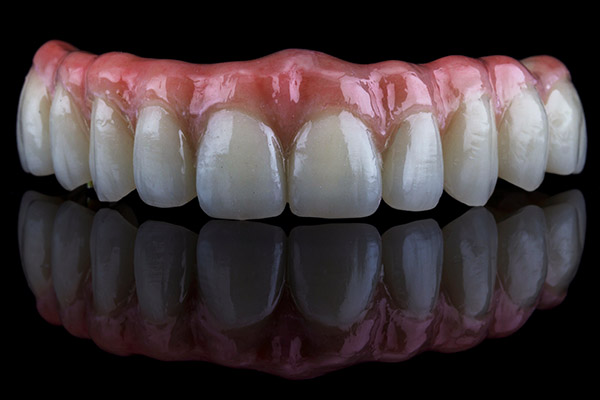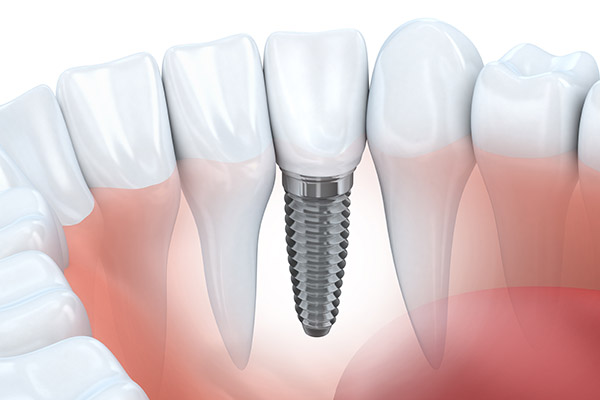 General dentistry focuses on issues that can help to improve your oral health. Gum disease is one of the most common reasons people seek dental treatment, right next to tooth decay. It is an infection of gum tissues that can affect anyone regardless of age, but it primarily targets people over 30.
General dentistry focuses on issues that can help to improve your oral health. Gum disease is one of the most common reasons people seek dental treatment, right next to tooth decay. It is an infection of gum tissues that can affect anyone regardless of age, but it primarily targets people over 30.
Gingivitis is the first stage of gum disease, and it can be reversed by improving your oral hygiene and getting regular teeth cleanings. Periodontitis is the second stage of gum disease, and there is no way to reverse it. It can only be managed with dental treatments.
Given how gum disease can be reversed in its early stages, early detection goes a long way. The advanced stage of gum disease is linked to serious health issues like cardiovascular disease and diabetes. It is also the leading cause of tooth loss in adults.
General dentistry treatments that improve gum health
Here are some of the treatments used in general dentistry to protect gum tissues from the bacteria in tartar and plaque:
1. Teeth cleanings
The American Dental Association recommends getting teeth cleaned twice a year. That combined with good oral hygiene goes a long way when it comes to keeping gum tissues healthy. Gum disease is caused by the bacteria in plaque and tartar making their way below the gumline. The bacteria infect tissues below the gums, prompting a response from the immune system.
The ensuing battle between the invading bacteria and antibodies dispatched to the area leads to the gum irritation and inflammation associated with gum disease.
Plaque and tartar contain oral bacteria and the acids they produce. Plaque can be removed from teeth and gums by brushing and flossing, but getting rid of tartar is not that easy. Tartar is calcified plaque, and a metal tool called a scaler and ultrasonic tools are needed to get it off teeth. That means tartar gets to build up on teeth and gum pockets between teeth cleanings. Teeth cleanings are mainly performed as a preventative treatment, but they can be used to treat gingivitis.
2. Root scaling and planing
This treatment is often recommended for more advanced cases of periodontal disease, and it can help reverse gingivitis. Also known as deep cleaning, the procedure includes all the things that go on during regular teeth cleanings. It also involves cleaning teeth roots and removing tartar deposits from them. The dentist finishes the procedure by polishing teeth roots to make it harder for new tartar deposits to buildup on them.
3. Antibiotic treatment
Dentists sometimes help to address inflammation and plaque deposits underneath the gums with prescription antibiotics like minocycline HCL. These antibiotics are often placed inside periodontal pockets to kill bacteria that cause gum disease.
Your gum health affects your overall health
People with gum disease are up to three times more likely to have a significant cardiovascular event like a heart attack. Call or visit our Atlanta clinic to learn more about treatments our dentist can use to keep your gum tissues healthy.
Request an appointment or call Pampered Smiles at 404-891-9489 for an appointment in our Atlanta office.
Recent Posts
General dentistry treatments are available to restore the function and appearance of your teeth, depending on the severity of the tooth damage. The dentist will examine the cracked tooth and design a suitable treatment plan.The following are common treatments in general dentistry for repairing a damaged or fractured tooth:Dental bonding is often done to fix…
When patients visit the general dentistry office, the goal is to keep their oral health excellent. The appointment may be nothing more than a professional dental cleaning and getting instructions on proper oral health so long as there are no oral issues. If dental problems are to be addressed, the dentist will recommend the appropriate…
Curious about what is considered general dentistry? Read on to learn more. A general dentist can help with the prevention and treatment of oral health concerns such as dental cavities and gum disease. General dentists recommend cleaning and check-up visits once every four to six months to maintain ideal oral hygiene.For most patients, a check-up…


